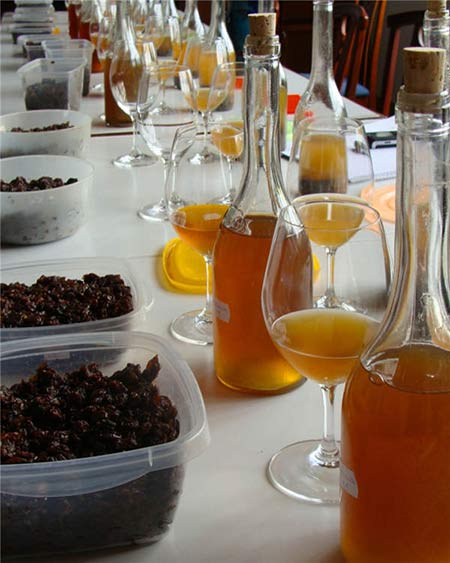Glass of gold
 |
|
Aszu berries are mashed and blended with wine for up to 48 hours during the wine's fermentation process, before a long, cool aging. |
Retaking the crown
Hungary's wine industry went largely below radar in the last half of the 20th century, as the collective farms of the postwar era focused on producing wine in volume, not in quality. "People generally had an average of about half of 1 hectare to farm during those years," says Szappanos, of Grand Tokaj, which has consolidated some holdings to create a 10 million-bottle annual capacity. The goal: Create a stable mix of large and small producers as well as promoting standards and providing marketing support in and beyond the region - a multi-year process.
Across town, Zoltan Demeter pours his take on a dry white. His production is boutique compared with operations like Grand Tokaj and the French-owned winery Disznoko, a favorite in high-end restaurants and duty-free shops. But the region has no stronger champion than Demeter, who has created a foundation to promote the wine region and celebrate the local vineyards' geological diversity.
In his tasting room, he foreshadows the arrival of each glass by presenting a rock from the vineyard that produced it. The soils of the area reflect two different volcanic eras, producing different mineralities from hill to hill - a key reason that equally tasty dry whites are quite different even from adjacent vineyards.
Demeter, however, is most eager to celebrate his sweet wines, the premium aszus that put Tokaj on the map.
"We need to have blind tastings against the top French sauternes," he insists. "People may have forgotten about us, but there is no reason we can't take the crown back after 100 years."
Contact the writer at mikepeters@chinadaily.com.cn
















